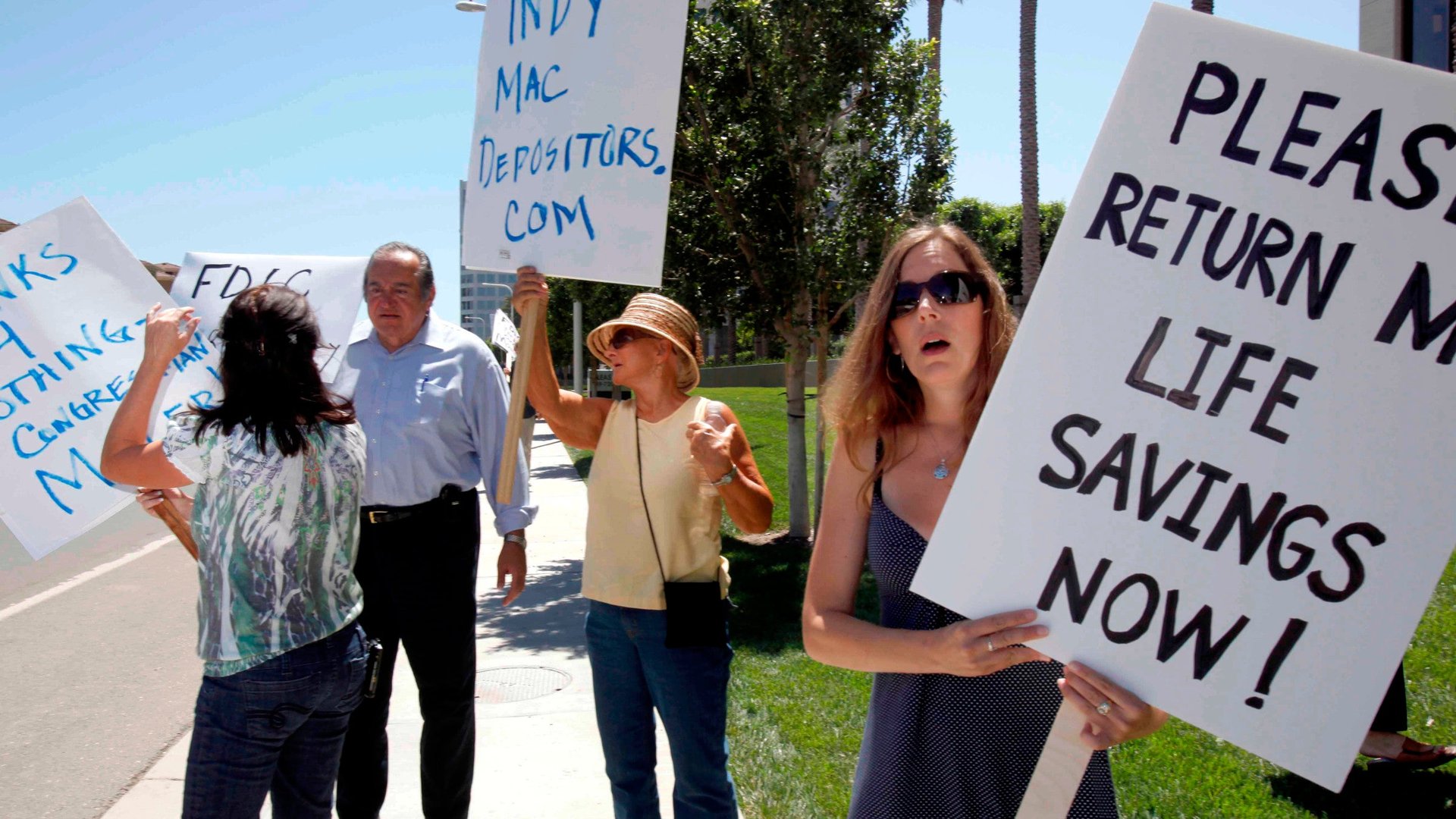Alleged bomber Cesar Sayoc lost a home in the financial crisis
Cesar Sayoc, arrested today in connection with bombs sent to public figures criticized by US president Donald Trump, was swept up in the 2008 housing crash and saw his home taken from him in a dubious foreclosure proceeding.


Cesar Sayoc, arrested today in connection with bombs sent to public figures criticized by US president Donald Trump, was swept up in the 2008 housing crash and saw his home taken from him in a dubious foreclosure proceeding.
Sayoc, a 56-year-old Florida man who became obsessed with Trump’s vision, had worked variously as a stripper and a manager of “male revue shows,” per the New York Times (paywall), and has a lengthy criminal record. Public records in Broward County, Florida, show Sayoc suffered a significant financial setback in 2009 that would lead to bankruptcy soon after.
David Dayen, a reporter who has extensively covered mortgage fraud, first reported Sayoc’s real estate records and linked him to a notorious “robo-signer” whose testimony showed how banks broke the law when foreclosing on some borrowers.
Recall that in the run-up to the financial crisis, the lucrative game for mortgage lenders was taking home loans, often poorly underwritten, and packaging them into securities that could be traded by investors who would never see the underlying properties. When the over-inflated housing market crashed, bringing the economy down with it, banks began to foreclose on these loans.
In their original haste to repackage the loans into securities, financial firms often failed to perform the correct paperwork to transfer ownership. To speed up their ability to seize homes from defaulted lenders and regain some value, they began submitting court filings without the proper backing information. Thus banks would file to foreclose on a home before establishing they had a legal claim on it. The practice of signing off on foreclosure documents without reviewing them became known as “robo-signing,” and it prompted a $9.3 billion settlements from major US banks.
That’s exactly what happened to Sayoc, who could not be reached for comment.
In April 2007, Sayoc took out a $385,000 mortgage from Indymac on a Fort Lauderdale home with an unusually high interest rate that would reset at a potentially higher level in five years. His timing wasn’t great: Florida home prices had peaked the year before and by December, the recession would officially begin. Court documents suggest Sayoc may have stopped paying his interest charges in September 2008.
That might make sense, since Indymac became insolvent in July 2008 and was seized by the government. A group of investors led by Treasury secretary Steve Mnuchin purchased Indymac the following year.
On Jan. 7, 2009, Indymac informed Sayoc that they would seek to foreclose on and sell his property. Then it gets fishy: Four months later, in April, Indymac submitted a document called a mortgage assignment. This is a legal form from the national database for mortgage titles that confirms the true owner of the mortgage.
The assignment submitted in the Sayoc case mentions that it will go into effect on Jan. 5, two days before Indymac submitted their foreclosure. But it was signed and witnessed on Jan. 23, and submitted to Broward County months later. This is a classic sign of a back-dated assignment, suggesting the bank did not actually verify ownership of the loan before they foreclosed, which can get such seizures overturned.
Another sign is the signature: Erica Johnson-Seck. She was an Indymac employee who testified in 2012 that she signed about 750 foreclosures a week, and eventually got the process down to signing the paperwork for one foreclosure every 30 seconds. That’s simply not enough time to perform the due diligence required by most state foreclosure laws.
By September 2009, a court approved the foreclosure of Sayoc’s property. He was left with a bill, including Indymac’s attorney’s fees, of $442,427, nearly $60,000 more than he originally borrowed. The next month, Indymac sold the house to a different mortgage lender for $166,500. In 2012, Sayoc filed for personal bankruptcy.
Today, the home on the property in question is worth $465,000, according to the real estate website Zillow.